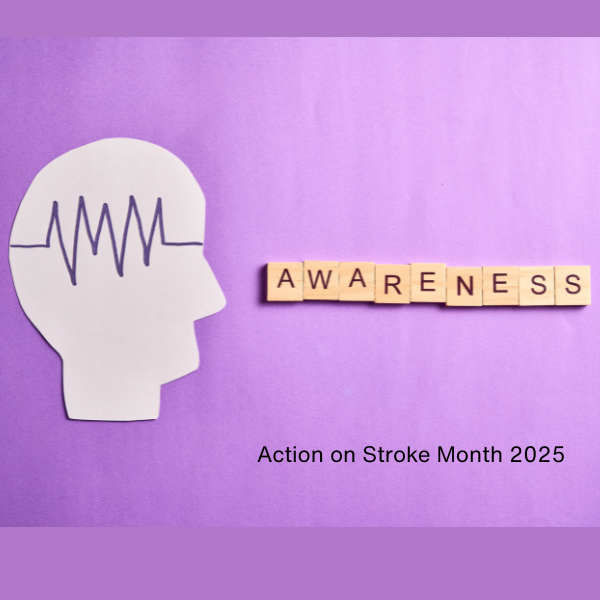Testicular Torsion – A Shift in Medical Opi...
Liver Cancer Misdiagnosis Compensation Claims Solicitors.
Being diagnosed with liver cancer will be an incredibly distressing and difficult time for you and your family, and these feelings can be exacerbated if you then find out that your condition has been made worse due to medical negligence.
Perhaps you were initially told your symptoms pertained to a less serious condition, or maybe you were offered the wrong type of treatment for your liver cancer, thus allowing your condition to develop and worsen.
Prompt diagnosis and suitable treatment are absolutely paramount when it comes to ensuring the best possible prognosis for liver cancer. Every day counts, and when you’ve mistakenly had to wait longer than necessary to receive the correct treatment, it can have devastating effects, both physically and mentally.
If you have experienced negligent treatment from a medical professional which has led to your liver cancer worsening, you may be entitled to cancer negligence compensation. Here at Lanyon Bowdler we have a great deal of experience in handling claims just like yours, with excellent results. We’re on your team and we’re here to help you seek justice for you and your family. Our friendly and empathetic team is ready to take your call today, so please don’t hesitate to get in touch.
Can I make a claim for Liver Cancer Negligence?
If your liver cancer has gotten worse or spead because of the negligence of doctors or other medical staff, you can likely make a claim for compensation.
In these cases, it is crucial to have an expert team of solicitors for liver cancer compensation, as you must build a strong case supported by clear evidence of negligence. Lanyon Bowdler has helped countless victims of medical negligence to reach the outcome they deserved for their pain and suffering.
Proving that negligence has happened, and that you have suffered because of it, is done by establishing a clear breach of the duty of care the medical staff owed you. This can be represented by delays, misdiagnosis, misinterpretation of test results, and many more circumstances.
Our Liver Cancer Misdiagnosis Expertise
Our Liver Cancer Specialist Solicitors are here to help guide you through the legal claims process. Get in touch today to get the compensation that you deserve.
Our people are your team, and our clients are at the centre of what we do. Here at Lanyon Bowdler, we pride ourselves on providing a bespoke approach to each and every clinical negligence case we handle. We really take the time to get to know you and to understand your situation, ensuring we’re able to provide the care and tailored advice that you need.
We understand that no amount of money can make up for what you and your family have been through, but we’re here to help you recover what you are entitled to.
If you’d like to find out more about how our medical negligence team can help you as you seek justice for your negligent treatment, please don’t hesitate to contact us. We offer a free initial consultation, with absolutely no obligation to pursue things further should you choose not to.
Your Liver Cancer Compensation questions answered
As with many other types of cancer, the outlook for liver cancer is best when it is diagnosed early, as if it is small enough the cancerous part of the liver may be capable of being completely removed before it has a chance to grow. However, as the symptoms of liver cancer often don’t show until the disease is more advanced, and as symptoms can be similar to many other conditions, there are opportunities for misdiagnosis to occur.
Liver cancer misdiagnosis can include:
- You present to your GP with concerning symptoms, and they fail to examine you or refer you for further investigation.
- Your condition is initially diagnosed as something else, thus you receive the wrong treatment.
- Your GP refers you to a specialist, but the appointment is unnecessarily delayed.
- Your test results show an abnormal reading which isn’t spotted or isn’t followed up on.
- You were diagnosed with liver cancer but then your treatment was delayed.
- Your doctor failed to fully explain all available treatments and their associated risks.
- You underwent surgery to remove the tumour, but the procedure was not carried out properly and the cancer has continued to spread.
- You were mistakenly told you had liver cancer, which led to distress and trauma, and potentially underwent treatment that you did not need.
This list is by no means exhaustive, and if you have received any type of negligent treatment at the hands of a medical professional, which has contributed to your liver cancer worsening, or your loved one has sadly died after receiving negligent care, you may be entitled to claim compensation.
The liver is able to function relatively well even when part of it is not working as it should be, so symptoms of liver cancer often don’t appear in the early stages. When symptoms do appear, they can be quite vague and are often similar to other conditions, giving rise to misdiagnosis.
The key symptoms of liver cancer include:
- Loss of appetite
- Nausea and/or vomiting
- Unintentional weight loss
- Fatigue and weakness
- Pain/discomfort in the liver and/or abdomen
- Itchy/irritated skin
- Generally feeling unwell
- Dark coloured urine
- Pale grey coloured stools
- The onset of jaundice
- Fine spider-patterned blood vessels
If you experience any of these symptoms it’s important to speak to your GP as soon as possible so that they can assess you and refer you for further investigation where necessary.
There are four different types of liver cancer that an individual could suffer from:
- Hepatocellular Carcinoma – This type of cancer forms in the hepatocytes, which are the main kind of cell within the liver. It is the most common form of liver cancer, and can either present as one single tumour, or it can affect several spots in the liver.
- Cholangiocarcinoma – This type of cancer begins in the bile ducts, the small tubes which carry bile to the gallbladder.
- Angiosarcomas and Hemangiosarcomas – These types of cancer form in the blood vessels of the liver, and the resulting tumour grows at a fast pace, meaning it is often difficult to be removed successfully.
- Hepatoblastoma – This is a rare form of liver cancer which usually affects very young children and is treatable when it is detected early enough.
The severity of liver cancer is ranked according to the seriousness of the condition and the likelihood of the patient responding to treatment, and is classified into stages as follows:
- Stage 0 – The tumour measures less than 2cm in diameter and there are no detrimental effects experienced on the liver function.
- Stage 1 – This is either a single tumour measuring less than 5cm in diameter, or between one and three smaller tumours measuring 3cm, with no adverse effects on the liver function.
- Stage 2 – Multiple tumours are detected within the liver, but the function of the liver is not detrimentally affected.
- Stage 3 – Any of the above situations apply, but the patient is also suffering from reduced function of the liver, and the cancer has spread to the blood vessels, nearby lymph nodes, or other parts of the body.
- Stage 4 – Liver function is minimal, and the patient shows signs of end-stage liver disease, which includes the accumulation of fluid in the abdomen (ascites).
As the second largest organ in the body, the liver is responsible for carrying out a number of complex and vital tasks, such as storing nutrients, producing bile, producing proteins, converting fat into energy, and helping the blood to clot.
There are a number of factors which could potentially increase the risk of developing liver cancer, including:
- Liver cirrhosis – This is scarring on the liver due to damage from infection, non-alcoholic fatty liver disease, long term alcohol use, or primary biliary cirrhosis, and can impact the way in which the liver functions.
- Lifestyle factors – Smoking, being overweight, and consuming alcohol excessively can all cause damage to the liver and increase the risk of cancer developing.
- Hepatitis viruses – Being infected with the hepatitis B or C virus over a long period can damage the liver and drinking alcohol whilst suffering with hepatitis can further increase the risk of developing cancer.
- HIV or AIDS – Those with HIV or AIDS typically have lowered levels of immunity, thus are less able to fight off infections and illnesses that could lead to cirrhosis.
- Diabetes – Higher insulin levels, plus the damage that may be caused to the liver due to diabetes, can increase the risk of developing liver cancer.
- Gallstones – Those who have had gallstones or have had their gallbladder removed may have an increased risk of developing liver cancer.
- Chemical exposure – Those who are exposed to certain industrial chemicals, including vinyl chloride, trichloroethylene, and arsenic, have a higher risk of developing cancer.
- Family history – The likelihood of developing liver cancer is increased if a family member has previously had the condition. This could be due to a genetic predisposition, or shared lifestyle and environmental factors.
The treatment prescribed for liver cancer will usually depend on the type and the stage the disease has reached when the diagnosis is made, but it will typically include some of the following:
- Surgery – If caught early, it may be possible to remove just the part of the liver in which the tumour has formed, leaving behind the healthy part of the liver. If the cancer has spread throughout the liver, a full transplant may be necessary.
- Trans arterial chemoembolisation (TACE) – This is a type of chemotherapy which is fed directly into the blood vessel feeding the tumour. It works by reducing the blood supply to the tumour, thus starving it of oxygen and slowing its growth.
- Radiotherapy – Radiation is used to kill cancer cells, and this method tends to be used to slow the growth of the cancer once it has spread beyond the liver.
- Thermal ablation – This is the use of heat to destroy the tumour and works best for small cancers that haven’t spread outside of the liver.
- Targeted cancer drugs – These work in a number of different ways; they can trigger the immune system to attack the cancer cells, or to suppress the cells and stop them from growing. Some drugs can also prevent the tumour from developing blood vessels.
If you feel that the treatment you were prescribed for your liver cancer was not suitable and that your doctor was negligent in their decision, you may be able to claim compensation. Our friendly and knowledgeable team can offer advice and guidance so please don’t hesitate to contact us.
What our clients say.
Time Limits on Making a Liver Cancer Claim and Funding Options
In general, the time limit for bringing a Liver Cancer Claim is three years from the date of the negligent act or the ‘date of knowledge’ of the injury (to cover situations where the impacts of negligence surface at a future time).
However, if a child suffers because of the negligence of another party, the time limit will usually expire on their 21st birthday unless the child never gains mental capacity due to their injuries, in which case the time limits do not apply.
We can support your Liver Cancer Claim through a range of funding options, including our No Win No Fee Medical Negligence Claim promise, as well as through private funding, and legal expenses insurance. Our Solicitors will consider whether we can handle your Liver Cancer Claim on a No Win No Fee basis at the point of an initial evaluation of the circumstance surrounding your injury.
Contact us
Please get in touch with one of our specialist medical negligence lawyers if you consider that you may have a Liver Cancer Negligence Claim.
At Lanyon Bowdler, we take pride in being a friendly and approachable law firm, so please get in touch if you or a loved one have been affected by a late or missed diagnosis, or incorrect treatment. Our team will be happy to talk you through the process of filing a compensation claim. There is no obligation to you for any charges for our initial assessment.
By choosing Lanyon Bowdler for any form of Medical Negligence Claim, you can rest assured that you have the best legal expertise on your team. Lanyon Bowdler’s Medical Negligence team is widely acclaimed and recognised as one of the best clinical negligence departments in the country. We are committed to providing exceptional levels of client care and will work closely and considerately with you to help find the best outcomes and help to get your life back on track.
We have offices in Shrewsbury, Bromyard, Conwy, Hereford, Ludlow, Oswestry, and Telford, so are able to act for clients all over Shropshire, Herefordshire, Mid and North Wales and across the Midlands (including Wolverhampton & Birmingham). As a leading full-service law firm, we can represent you wherever you live in England or Wales.
Meet the team.
Case studies.
Latest knowledge.
Our awards and accolades.
Get in touch.
"*" indicates required fields

 Back
Back






























 Blog
Blog




 Case Study
Case Study

 Podcast
Podcast












